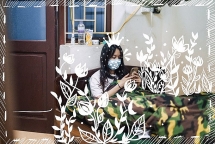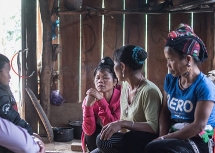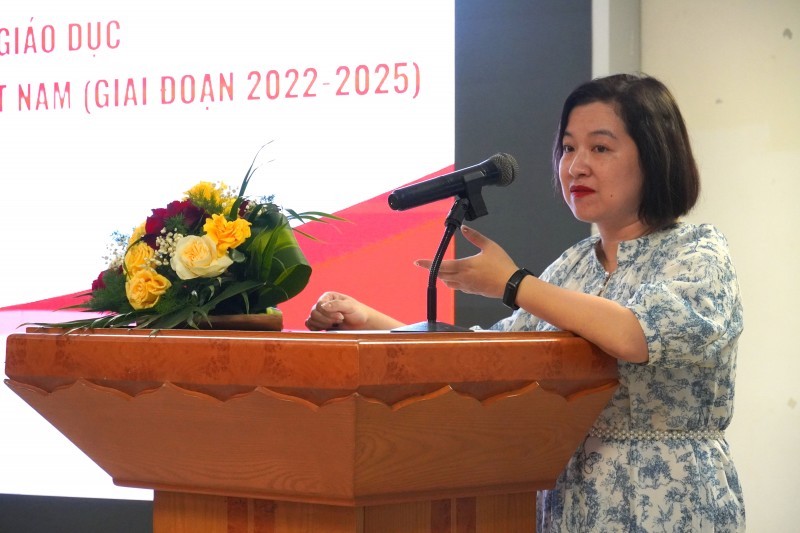"Third wave" Covid-19 crisis among world's most vulnerable people
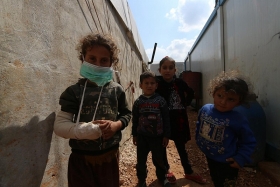 |
| Illustrative photo. |
Protective equipment and resources for testing are already a concern for China and Europe, but a third wave could leave developing countries with weakened health systems in a worse position – even though most currently have a relatively small number of cases.
Experts working with refugees, on humanitarian responses and in global health warned that the international community needs to begin working closely with governments around the world to help the most vulnerable.
“I don’t think we’re quite ready yet for the fights that are coming over limited supplies of personal protective equipment, limited supplies of vaccines and limited supplies of therapeutics,” said Jeremy Konyndyk, senior policy fellow at the Center for Global Development in Washington DC.
“When the first 100m doses of the vaccines come out, it’s going to be a big fight over who gets those, and it’s going to be very important that [they don’t] just go to those who can afford them.”
| Africa has had about 600 cases, compared with thousands in many individual European countries. But the World Health Organization chief, Tedros Adhanom Ghebreyesus, said more testing was needed across the continent. |
“Africa should wake up, my continent should wake up,” said Tedros.
But with testing limited in much of the world, including the UK, developing countries faced a major challenge, said Karl Blanchet, director of the Geneva-based Centre for Education and Research in Humanitarian Action.
“Testing has to happen, it is the priority. The problem is low-income countries are probably arriving on the third wave, after China, after Europe. Access to tests is going to be problematic,” said Blanchet.
| While many richer countries were currently focused on their own populations and economies, the humanitarian community would have to look at changing the way it works, said the experts, by investing in the strengthening of worldwide public health systems rather than focusing on single-issue campaigns. |
“This is not just about providing services in a refugee site or a conflict-affected area, this is really about the fundamental of health systems and about health-seeking and health-protecting behaviour across entire countries,” said Konyndyk. “That is not something that we in the humanitarian sector are always terribly well set up for.”
Konyndyk said the sector would have to work more with governments and local organisations, who have the trust of the communities with which they work.
Lefèvre praised such workers for quickly setting up mobile clinics and using technology to communicate with people.
“We have good locally-led responses, but it needs to be better coordinated with other actors in-country and at the international level,” she added.
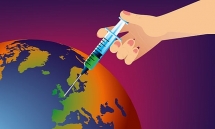 | Coronavirus Vaccine: Global Competition The United States, China and Europe are battling to be the first finder a cure, bringing a nationalist element to a worldwide crisis that could ... |
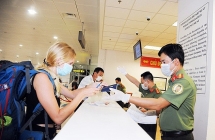 | All travelers into Vietnam shall be subject to centralized quarantine since March 21 Deputy Minister of Transport Le Anh Tuanl incoming travelers to Viet Nam shall be subject to mandatory centralized quarantine for 14 days, applicable since March 21 ... |
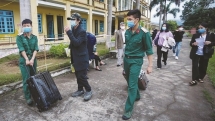 | ‘My paradise’, overseas Vietnamese return home amid COVID-19 "I've just calmed down after fleeing Paris, my 'paradise', only yesterday," wrote a middle-aged woman after she safely landed in Việt Nam. |
Recommended
 World
World
Pakistan NCRC report explores emerging child rights issues
 World
World
"India has right to defend herself against terror," says German Foreign Minister, endorses Op Sindoor
 World
World
‘We stand with India’: Japan, UAE back New Delhi over its global outreach against terror
 World
World
'Action Was Entirely Justifiable': Former US NSA John Bolton Backs India's Right After Pahalgam Attack
 World
World
US, China Conclude Trade Talks with Positive Outcome
 World
World
Nifty, Sensex jumped more than 2% in opening as India-Pakistan tensions ease
 World
World
Easing of US-China Tariffs: Markets React Positively, Experts Remain Cautious
 World
World

